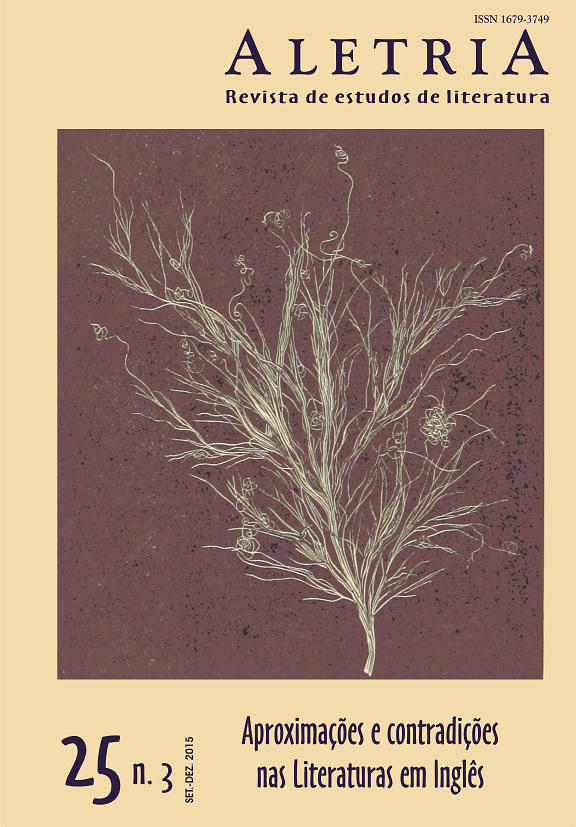Children of Oryx, Children of Crake, Children of Men: Redefining the Post/Transhuman in Margaret Atwood’s “ustopian” MaddAddam Trilogy
DOI:
https://doi.org/10.17851/2317-2096.25.3.133-146Keywords:
transhumanism, “ustopia”, MaddAddam trilogy, post-apocalyptic fictionAbstract
One of the main pillars of posthuman and transhuman thought is the use of technology as a means to ameliorate human life by helping overcome the flaws and limitations of the biological body. The effect of such trends has been central to the development of contemporary, third-turn dystopian novels in English, published in the past thirty or so years. However, one important aspect of such narratives is also their list of transgressive characteristics, distancing them from their modern, second-turn counterparts. The following article aims to discuss how transgressive the ideas of dystopia and transhumanism that form Margaret Atwood’s MaddAddam trilogy are, essentially discussing whatever lies at the core of the human condition.
Downloads
References
ATWOOD, Margaret. Oryx and Crake. New York: Anchor Books, 2003.
ATWOOD, Margaret. The year of the flood. New York: Anchor Books, 2009.
ATWOOD, Margaret. In other worlds: SF and the human imagination. London: Virago, 2011.
ATWOOD, Margaret. MaddAddam. London: Bloomsbury, 2013.
BOUSON, J. Brooks. “It’s game over forever”: Atwood’s satiric vision of a bioengineered posthuman future in Oryx and Crake. In: BLOOM, Harold (Ed.). Bloom’s modern critical views: Margaret Atwood. New York: Bloom’s Literary Criticism, 2009.
CLAEYS, Gregory. The origins of dystopia: Wells, Huxley and Orwell. In: CLAEYS, Gregory (Ed.). The Cambridge Companion to Utopian Literature. Cambridge: University of Cambridge Press, 2010.
FUKUYAMA, Francis. The end of history and the last man. New York: Free Press, 1992.
FUKUYAMA, Francis. Our posthuman future: consequences of the biotechnology revolution. New York: Farrar, Straus and Giroux, 2003.
HOWELLS, Coral Ann. Margaret Atwood’s dystopian visions: the Handmaid’s Tale and Oryx and Crake. In: HOWELLS, Coral Ann (Ed.). The Cambridge Companion to Margaret Atwood. Cambridge: Cambridge University Press, 2006.
MARKS DE MARQUES, Eduardo. “God is a cluster of neurons”: neo-posthumanism, theocide, theogony and anti-myths of origin in Margaret Atwood’s Oryx and Crake”. Gragoatá, Niterói, n. 35, p. 155-169, 2. sem. 2013.
MARKS DE MARQUES, Eduardo. I sing the body dystopic: utopia and posthuman corporeality in P.D. James’s The children of men. Ilha do Desterro, Florianópolis, n. 65, p.29-48, jul/dez 2013.
MOHR, Dunja M. Transgressive utopian dystopias: the postmodern reappearance of utopia in the disguise of dystopia”. Zeitschrift für Anglistik und Amerikanistik (ZAA) , Leipzig, v. 55, n.1, p. 5-24, 2007.
WOLFE, Cary. What is posthumanism? Minneapolis: University of Minnesota Press, 2009.
Downloads
Additional Files
Published
Issue
Section
License
Copyright (c) 2016 Eduardo Marks de Marques (Autor)

This work is licensed under a Creative Commons Attribution 4.0 International License.
Authors who publish with this journal agree to the following terms:Authors retain copyright and grant the journal right of first publication with the work simultaneously licensed under a Creative Commons Attribution Non-Commercial No Derivatives License that allows others to share the work with an acknowledgement of the work's authorship and initial publication in this journal.Authors are able to enter into separate, additional contractual arrangements for the non-exclusive distribution of the journal's published version of the work (e.g., post it to an institutional repository or publish it in a book), with an acknowledgement of its initial publication in this journal.Authors are permitted and encouraged to post their work online (e.g., in institutional repositories or on their website) prior to and during the submission process, as it can lead to productive exchanges, as well as earlier and greater citation of published work (See The Effect of Open Access).









